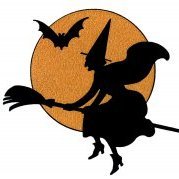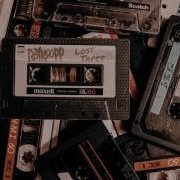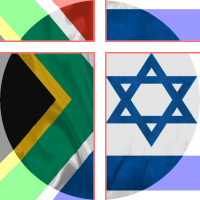-
Posts
1330 -
Joined
-
Last visited
Trutharchivist's Achievements
699
Reputation
Single Status Update
See all updates by Trutharchivist
-
Tomorrow is Yom Kippur, the Day of Atonement.
This day is considered to be the holiest day of the Jewish calendar, more or less. And quite frankly, with how I handled explaining Rosh Ha'Shana, I'm scared I might fail to explain things here.
In the Torah, this day has a rather unique set of commandments: for one, it's the only day during which the Torah commands to fast - it actually uses an interesting word for which I honestly am not sure how much I trust the translations. From it, five prohibitions are deduced: not to eat or drink, not to wash or lubricate our bodies, not to wear shoes made of leather and not to commit intercourse. You may remember those from Tish'a b'Av (the 9th of Av), of which I talked in its own time. In addition to that, it's a Yom Tov - meaning all the regular prohibitions on doing everything considered a Melacha, meaning more-or-less work, are present, too. Now, in a regular Yom Tov (unlike Shabbat), it's allowed to do things for food. Yom Kippur, naturally, is different - though heating food the same way that's allowed on Shabbat is fine, in order to feed children. So it's more like Shabbat than a regular Yom Tov. And unlike regular fast days, it starts upon sunset, not sunrise.
But that's only one part of its uniqueness; because in addition to all that, there's a special procedure including many special sacrifices, done exclusively by the Cohen Gadol, the High Priest, in the Temple - including entering the Holiest of Holies, Kodesh ha'Kodashim, multiple times. It's a whole thing, on which I'm not going to elaborate - especially since none of it is happening today, without the Temple. In essence, it's all done to atone for the sins of the people of Israel. One thing you may have heard of is the scapegoat: two goats are brought before the High Priest and he casts lots over which one is sacrificed on the altar - and the other is being sent later to a place called Azazel, in the desert. According to the Sages, the goat sent to Azazel was pushed from a cliff and did not survive it.
This entire sequence is kind of weird, and is more or less the only important action on Yom Kippur that occured outside the Temple and was carried out by someone other than the High Priest. It's probably symbolic in nature - the goat carrying all the sins of the Israelites is being torn apart at the edge of the desert. I'm not going to comment a lot on it, though - I have heard that some Christians claim that Jesus replaced this; I obviously don't believe in any such thing, and I don't think it needs much explaining why.
The work of the High Priest was a very big part of Yom Kippur. So, in its absence, what are we doing? The answer is simple. We pray.
This idea comes from a verse in Hosea (14, 2) which says "we offer our lips as sacrifices of bulls" (more or less), which is taken to mean that when unable to make sacrifices - we may repay them instead in prayers. This idea actually is a part of a couple of things in Judaism - prayers in general are understood this way: the morning and afternoon prayers in place of the Tamid offering, two lambs that were sacrificed every day in the Temple; a prayer is added during holidays (specifically ones from the Torah) and at the first day of every month in place of special additional sacrifices. And in Yom Kippur... well, if during the days of the Temple it was a day full of work and offerings in the Temple all done by the High Priest, now it's a day full of prayers for everyone. Basically: if every holiday in the Jewish calendar changes the prayers somewhat but has a separate special Thing, then prayers are Yom Kippur's Thing.
But perhaps I'm getting ahead of myself. That's what we do on this day, but the purpose is also important to remember. Plus, I didn't even get to the question of historical event! So, let's start from that: is there a historical event for Yom Kippur?
Well, as happened with most of the holidays so far, the Torah does not mention any such thing. Nor does the rest of the Tanakh, unless you include certain prophecies that were given this day - but they were given way later than the time the day was instituted, so I'm not talking about that. Instead, I intend to go back to the Talmudic math.
Remember Shavuot? Remember how I told you back then the next time I post one of those SUs it'd be 40 days later, a promise I've fulfilled (more or less)? Well, the reasoning I gave back then actually extends to now, in a way. You see, after the Golden Calf fiasco, Moshe went to Mt. Sinai for forty more days of prayer, asking G-d to forgive His Chosen People. Then, after forty days, G-d relented - though somewhat reluctantly. Since the 17th of Tamuz is the day in which Moshe came down from Mt. Sinai the previous time, an additional amount of forty days brings us to the end of Av. But here's the thing: according to tradition, which is somewhat supported by scripture in Deuteronomy, Moshe went up to the mountain for forty more days on the first day of Elul - the month after Av. At the end of those forty days he went down from the mountain with the Second set of Tablets - and G-d forgave the people of Israel in a more complete way, and agreed to lead them Himself to the Promised Land. And since the lunar month is just about 30 days, these forty days end at the 10th day of Tishrey (often transliterated as Tishri, G-d knows why), which is, incidentally, Yom Kippur! So, from then on, this is a Day of Atonement for the people of Israel, during which we are purified of our sins. And the day's prayers are, quite naturally, about that. The most repeated part of the prayer is the Viduy - confession, during which we say a list of sins that we may have committed. (Adding sins you know you've committed is possible, I think - though they are most likely included under one of the categories already mentioned.) Saying it like that sounds awfully systematic, really - which I don't see as very positive - but this is how Jewish prayers go, and one can still actually confess, regret and repent while saying those prayers. I know I have.
Confession, in and of itself, is not really enough to atone for one's sins. One must regret, stop committing said sin (obviously) and repent so strongly that the Knower of Hidden Things would be able to testify on them they'll never commit this sin again - according to Rambam, AKA Maimonides. In the case of sins committed against other people, the Day of Atonement does not atone unless you apologize and your apology is accepted. The Talmud says that a person shouldn't be too hard and refuse to forgive, but this saying should not be taken to the extremity it sometimes is taken to - that if a person refused to accept an apology after three times the sin is passed to them. In addition, if a person sins with the belief that this day will atone for him - the Day of Atonement does not atone for their sins. Also, there is no indication that this day wipes out court proceedings; it's only in the Heavenly Court that it matters.
This day is also the culmination of all the days in which we said the Selichot; so naturally, there are many prayers of this sort, and the Thirteen Attributes of Mercy are said multiple times. This doubles back to the historical event - because in addition to giving the Second set of Tablets to Moshe, during those forty days G-d taught him those Attributes - and according to tradition, He taught him how to pray - by reminding G-d of His infinite mercy.
One more part of the prayer is a complete retelling of the High Priest's work during this day; plus, in addition to the four regular prayers of a Yom Tov, this day has a fifth prayer called Ne'ilah - lit. Locking up. It's at the end of the day, and while the gates of Heaven are said to be open for prayers for the entire day (moreso than usual) - this is the time they supposedly lock up.
I hope all that helped highlight the two seemingly contradictory sides of the day - of what a happy day it is, to be rid of our sins and atoned, and how serious and intense it can get, with all the prayers and confessions. If not, well, maybe you can reread some things with that in mind.
During this day there's a tradition to wear white. No, we do not go to kill a king - rather, to dress like his messengers do, meaning angels. During this day we are likened to them in our cleanness from sins (I think). And one more thing I wanted to mention - eating during the day before.
There is (apparently) a saying that Jewish holidays are mostly "they tried to kill us, they failed, let's eat", with fast days being "they succeeded, let's not eat". This is not true during Yom Kippur either way - but the interesting part is that the sages say: "well, the verses say that we start fasting at the evening of the 9th day. But what it actually means is: if you eat during the 9th and fast during the 10th, it's as if you've fasted both days." No, seriously. This is why, on the day before Yom Kippur, we eat a lot. Technically, this is the only day of the Jewish year during which, as inferred from the Torah by the Sages, there's an active commandment to eat. Well, that's kind of over-glorifies it, since all the Yamim Tovim and Shabbat have an obligation to eat, too, according to the Sages, but this day tends to be more pronounced.
There are still more traditions attached to this day: I mistakenly mentioned Kapparot at Rosh Ha'Shana, while they belong to the day before Yom Kippur (I think the similar root should've made that obvious), and man traditionally go to the Mikveh - which is a pool, more or less, for special religious purposes, not getting into it right now.
So, long story short: the Day of Atonement is a fast day, full of prayers asking for G-d's forgiveness. It's often considered the holiest Jewish holiday. I... umm... am not sure what should be added to this shortened version. I really hope I did justice to this day.
I didn't talk about what portions from the Torah and Prophets we read at this day, and I don't think I will - though this is an interesting topic unto itself.
Thank you for reading, and gave a good day! And, if I have offended anyone here during my time on the Shard, I'm sorry, I would like it if you PM me during the next 24 hours so I could apologize properly.
גמר חתימה טובה! (Oh, gah, I forgot explaining this part... nevermind.)


.thumb.png.5afeb53c24c681e1d35e3f8ba62a6319.png)











